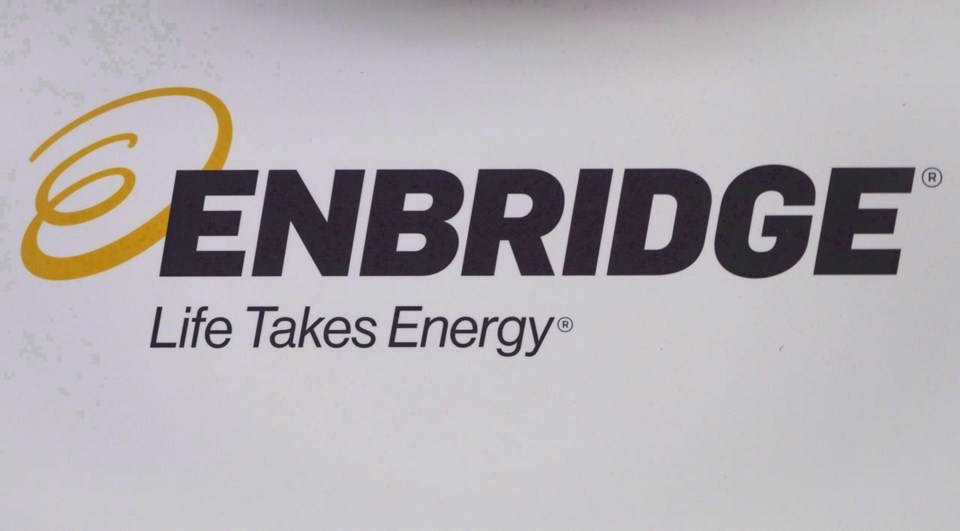CALGARY — Enbridge Inc.'s successful negotiation of a tolling deal for its Mainline pipeline system will help protect the company against significant volume losses once the Trans Mountain pipeline expansion opens, analysts say.
The Calgary-based pipeline giant has been trying to reach a deal with oil shippers on a new tolling agreement since November 2021, when Enbridge's proposal to fill the Mainline network through long-term contracts was rejected by the Canada Energy Regulator.
The Mainline network is Canada's largest oil pipeline system, providing about 70 per cent of the total oil pipeline transportation capacity out of Western Canada.
On Thursday, Enbridge announced a new agreement covering both the Canada and the U.S. portions of the Mainline system. Once finalized and approved by the regulator, the new tolling deal will be in place through 2028.
Demand for shipping on the Mainline has exceeded capacity over the past few years, and the pipeline system is currently running completely full.
But Enbridge — which reported a first-quarter profit of $1.7 billion on Friday, down from $1.9 billion a year ago — will also soon be facing increased competition when the Trans Mountain pipeline expansion comes online. That project, which is currently under construction and expected to be in-service in the first quarter of 2024, will increase the Trans Mountain pipeline's capacity by 590,000 barrels per day to a total of 890,000 barrels per day.
While Enbridge still expects to lose some volume to Trans Mountain, the company says its Mainline system should be 95 per cent full even with the additional competition. The Trans Mountain expansion project was originally supposed to be finished in 2022, and the construction delays have meant more time for western Canadian oil producers to increase supply.
In addition, the cost of the Trans Mountain expansion has ballooned to $30.9 billion, and a portion of the project's cost overruns will likely be passed on to shippers in the form of increased tolls.
At the same time, TC Energy Corp.'s Keystone pipeline system is operating under reduced pressure following an order by a U.S. regulator in the aftermath of a pipeline spill in Kansas last year.
"Going forward, our incentive to maximize barrels on the system, combined with our new more competitive toll and our unparalleled market access increases the attractiveness of our pipeline compared to others and ensures the Mainline will be well utilized by our customers for decades to come," Enbridge CEO Greg Ebel said on a conference call with analysts.
In a note to clients, RBC analyst Robert Kwan said the new Mainline tolling plan — which includes a financial performance collar providing incentives for Enbridge to optimize throughput and cost — protects Enbridge against certain risks, "including significant volume losses associated with the start-up of the Trans Mountain expansion."
Enbridge's first-quarter profit amounted to 86 cents per share for the quarter ended March 31, down from 95 cents per share in the same quarter a year earlier.
On an adjusted basis, Enbridge said it earned 85 cents per share, up from an adjusted profit of 84 cents per share a year earlier.
The result matched the average analyst estimate for adjusted profit per share, according to estimates compiled by financial markets data firm Refinitiv.
This report by The Canadian Press was first published May 5, 2023.
Companies in this story: (TSX:ENB)
Amanda Stephenson, The Canadian Press
Note to readers: This is a corrected story. A previous version erroneously said the Trans Mountain expansion project is to increase the pipeline's capacity from 590,000 barrels per day.




